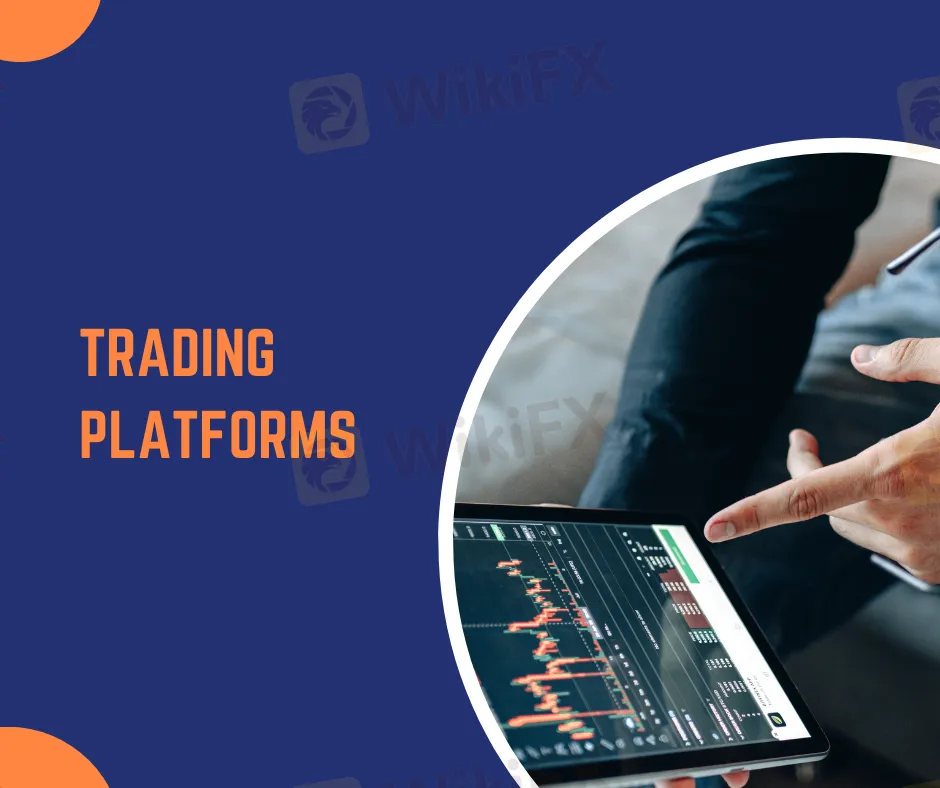Essential Insights for Picking the Best Online Broker
Abstract:Choosing the right online broker is a critical decision for anyone looking to engage in trading and investment. The broker you select can significantly impact your trading experience and potential success.

Choosing the right online broker is a critical decision for anyone looking to engage in trading and investment. The broker you select can significantly impact your trading experience and potential success. To make an informed decision, you should carefully evaluate several key factors, including customer service, regulatory compliance, education resources, execution speed, and more. Here is a comprehensive guide to help you choose the best online broker for your needs.

Effective customer service is essential for resolving issues and addressing queries promptly. Look for brokers that offer multiple channels of communication, such as phone support, email, and live chat. Additionally, assess their responsiveness and availability, especially if they provide 24/5 or 24/7 support. Positive reviews and testimonials from existing clients can also provide insights into the quality of customer service.

Regulatory compliance is crucial for ensuring the safety and integrity of your investments. A reputable broker should be regulated by a recognized financial authority. In the U.S., this would include agencies like the Securities and Exchange Commission (SEC) or the Commodity Futures Trading Commission (CFTC). In Europe, look for brokers regulated by the Financial Conduct Authority (FCA) in the UK or the European Securities and Markets Authority (ESMA). Regulatory oversight ensures that the broker adheres to strict standards of conduct and provides a level of protection for your investments.

A good broker should offer a range of educational resources to help traders improve their skills and knowledge. This includes webinars, tutorials, eBooks, and market analysis. Educational resources can be particularly valuable for beginners who need to understand market dynamics and trading strategies. A broker that invests in educating its clients demonstrates a commitment to their long-term success.

Execution speed and slippage are critical factors for active traders who rely on timely trade execution. Execution speed refers to how quickly a broker can process your trade orders, while slippage occurs when theres a difference between the expected price of a trade and the actual price. Brokers with faster execution speeds and minimal slippage can help you achieve better trading outcomes, especially in fast-moving markets.

Leverage allows traders to control larger positions with a relatively small amount of capital. Different brokers offer varying levels of leverage, which can impact your trading strategy and risk exposure. While higher leverage can amplify potential returns, it also increases the risk of significant losses. Assess the leverage options offered by brokers and choose one that aligns with your risk tolerance and trading strategy.

The trading platform is your gateway to the markets. A good broker should offer a reliable and user-friendly trading platform. Key features to look for include advanced charting tools, technical indicators, and customizable layouts. Popular platforms like MetaTrader 4 (MT4), MetaTrader 5 (MT5), and proprietary platforms from brokers each have their own advantages. Ensure the platform supports your trading style and provides a smooth, stable trading experience.

Trading hours vary depending on the broker and the markets they offer access to. While major markets like Forex are available 24/5, some brokers may offer access to additional markets with extended hours. If trading outside standard market hours is important to you, verify the brokers trading hours and ensure they align with your trading schedule and preferences.

Brokers typically offer various account types, including standard, mini, and managed accounts, each with different features and minimum deposit requirements. Review the account types available and assess their features, such as minimum trade sizes, margin requirements, and access to additional tools or services. Choose an account type that fits your trading needs and preferences.

The spread is the difference between the bid and ask prices of a security and is a key component of trading costs. Brokers may offer fixed or variable spreads. Fixed spreads remain constant, while variable spreads can fluctuate based on market conditions. Lower spreads reduce trading costs and can improve your overall profitability. Compare the spreads offered by different brokers to find one that provides competitive pricing.

The minimum deposit required to open an account can vary widely among brokers. Its important to choose a broker whose minimum deposit requirement fits within your budget. Additionally, consider whether the broker offers flexible deposit and withdrawal options and whether there are any associated fees or processing times.

Convenience in depositing and withdrawing funds is crucial. Look for brokers that offer a variety of deposit and withdrawal options, including bank transfers, credit/debit cards, and e-wallets. Verify the processing times for these transactions and check if there are any fees involved. Fast and cost-effective transactions enhance your overall trading experience.

Selecting the right online broker involves evaluating multiple factors to ensure they align with your trading goals and preferences. By thoroughly researching and comparing brokers based on these criteria, you can make an informed decision that supports your trading success and enhances your overall trading experience. To streamline your broker selection process, download the free WikiFX mobile application!
WikiFX is a powerful online platform dedicated to providing traders with comprehensive regulatory information and reviews of forex brokers worldwide. By offering detailed insights into broker regulations, user experiences, and overall credibility, WikiFX empowers traders to make informed decisions with confidence. The platforms extensive database and user-friendly interface allow traders to quickly verify the legitimacy of brokers, compare their offerings, and assess their regulatory status—all at no cost.

Read more

Malaysian Trader Loses Over RM1.6 Million in Investment Scam via WeChat
A 56-year-old trader from Gombak, Malaysia, recently lost more than RM1.6 million in a sophisticated online investment scam orchestrated through the popular messaging application, WeChat.

Prop Trading vs. Algo Trading: How They Shape Modern Markets
This article will provide an overview of these two strategies, examining what sets them apart and why each has its place in today’s markets.

Tradeweb and TSE Partnership Enhances Access to Japanese ETFs
Tradeweb and Tokyo Stock Exchange partner to improve ETF liquidity for global investors, offering streamlined access and competitive trading in Japan’s ETF market.

ATFX Connect Partners with Your Bourse for Enhanced Broker Liquidity
ATFX Connect collaborates with Your Bourse to boost broker liquidity options, offering tailored solutions, advanced tools, and real-time reporting capabilities.
WikiFX Broker
Latest News
Is WesternFX a Reliable Broker?
ThinkMarkets Expands Mobile Integration with TradingView
Binance Ordered to Unmask Account Holder in €186,000 Crypto ‘Pig Butchering’ Scam
Will Trump’s Second Term Drive Economic Growth Through Tax Cuts?
InstaForex Lucky Trader Contest
What Happens if A Broker Goes Bust?
Why Do Experienced Traders Care About Forex Spreads?
ATFX Expands LATAM Presence with New Mexico Office
CySEC Warns against Public Review Websites
Former Alameda Executives Hand Over Assets in FTX Creditor Recovery Effort
Rate Calc
